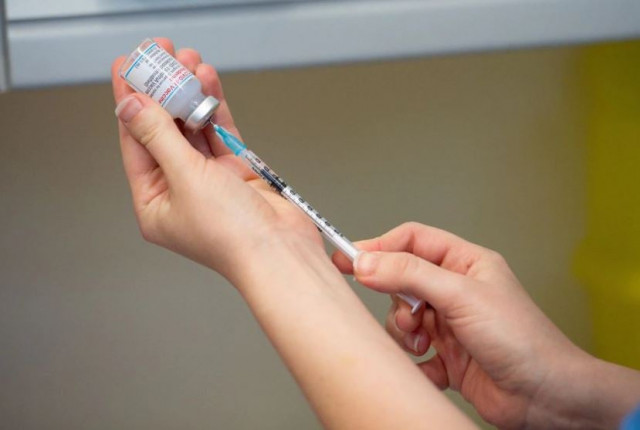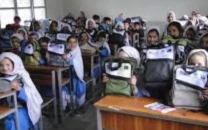K-P to outsource eight remote hospitals
Govt announced Rs75m funds for 19 such hospitals

The Khyber-Pakhtunkhwa health department has embarked on a significant initiative, deciding to outsource eight additional public sector hospitals in the remote regions of the province through public-private partnerships.
This move is aimed at improving healthcare access and services in far-flung areas.
Official sources told The Express Tribune that the caretaker provincial cabinet has given its approval for the outsourcing plan, paving the way for agreements to be signed with new companies. The selected hospitals, categorized as Category D, are situated in former FR DI Khan (Darazinda) and various parts of Chitral.
Notably, seven of these hospitals are located in different mountainous regions of Chitral, including Dogar Hospital, Kheli Jo Hospital, Toi Khel Hospital, Darzara Hospital, Mashtuj, and Garam Chisma Hospital.
The outsourcing process involves opening bids next week, with agreements set to be signed for a three-year period. Private companies taking on the responsibility of managing and operating these healthcare facilities will be crucial in ensuring sustained and improved healthcare services in these underserved areas.
It’s important to highlight that while these hospitals were part of the 19 facilities previously outsourced in the province, their contracts have now expired. Therefore, the decision to sign new agreements reflects the government’s commitment to addressing the evolving healthcare needs of the population.
Read K-P hospitals receive vital cash injection
To support this outsourcing initiative, the provincial government has allocated a substantial budget of Rs880 million for these hospitals. In the initial phase, an emergency fund of Rs75 million will be released, emphasizing the urgency and priority attached to this healthcare intervention. The comprehensive paperwork for this process has already been completed, ensuring a streamlined approach to the execution of these agreements.
However, it’s crucial to note that challenges have been observed in similar outsourcing arrangements, as seen in the case of Category D hospitals in Bajaur.
Despite operating under public-private partnerships, the employees of these hospitals have reportedly gone without salaries for the past 12 months. This situation raises concerns about the sustainability and effectiveness of such partnerships and underscores the need for careful oversight and management.
Local tribal elders have voiced their concerns, calling on the government to immediately release funds for the affected hospitals in Bajaur. They emphasize that these hospitals serve as lifelines for the communities in these areas, and the absence of salaries has created significant problems, affecting both the healthcare providers and the general public relying on these facilities.
This situation underscores the importance of meticulous planning and monitoring in the implementation of public-private partnerships in the healthcare sector. While such partnerships can bring in expertise and resources from the private sector, ensuring the financial sustainability of these arrangements is paramount to avoid disruptions in essential services.
The Khyber-Pakhtunkhwa government has taken a holistic approach to healthcare system monitoring, aiming to enhance the quality of public sector hospitals throughout the province.
In a recent surprise visit to Qazi Hussain Ahmad Medical Complex in Nowshera, Caretaker Chief Minister Justice (retd) Syed Arshad Hussain Shah expressed dissatisfaction with the poor hygiene standards in the hospital. He set a deadline of one week for the hospital management to improve the situation, emphasizing that sanitation and cleanliness are vital for effective healthcare service delivery.
Without a hygienic environment, the delivery of quality healthcare becomes challenging, and the government’s emphasis on cleanliness underscores its dedication to providing the best possible healthcare services to the residents of Khyber-Pakhtunkhwa.
Published in The Express Tribune, January 1st, 2024.



















COMMENTS
Comments are moderated and generally will be posted if they are on-topic and not abusive.
For more information, please see our Comments FAQ